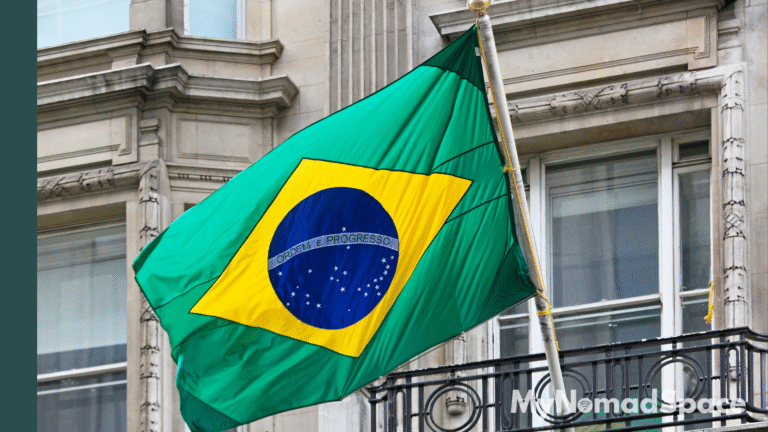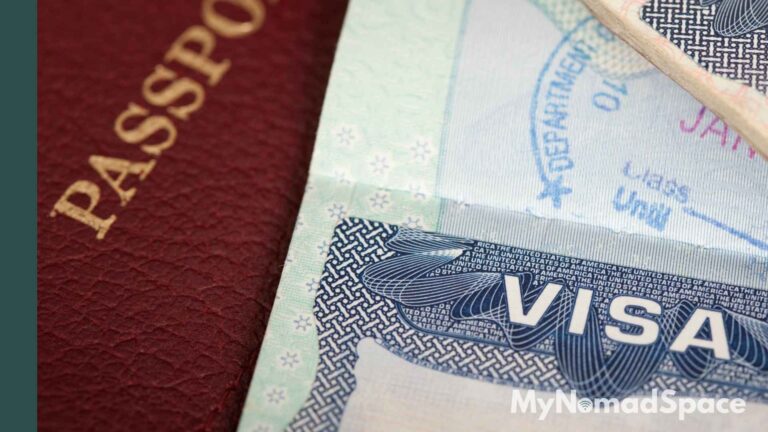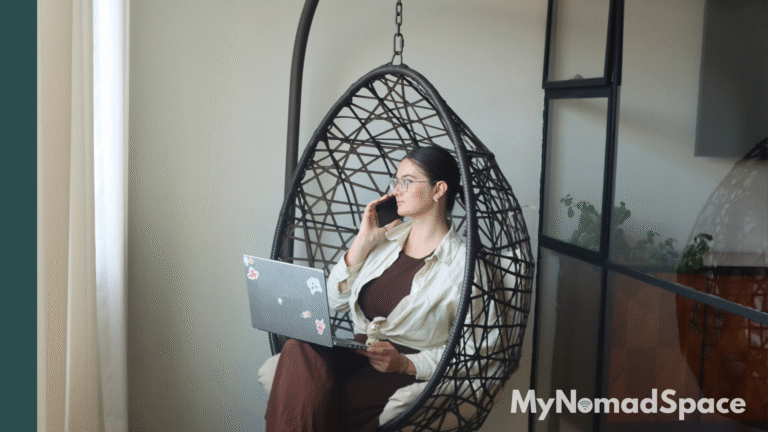Thinking of Brazil as your next digital nomad country?
If the idea of working remotely with samba beats in the background, tropical beaches at your doorstep and vibrant cities like Florianopolis, Rio de Janeiro and Sao Paulo to explore sounds like your kind of vibe, Brazil might just be calling your name. It’s a firm favourite among remote workers for its culture, weather and affordability compared to Western nations. And now, it’s even more accessible thanks to the VITEM XIV, Brazil’s official digital nomad visa.
Want to know how it all works? Let’s walk you through it.
In This Brazil Digital Nomad Visa Guide
What exactly is the VITEM XIV?
Launched in early 2022 by Brazil’s National Immigration Council (via Resolution No. 45), the VITEM XIV visa was designed to meet the needs of a growing group of people: digital nomads who want to live abroad legally while continuing to work for clients or companies based elsewhere.
This visa allows remote workers to legally live and work in Brazil for an extended period – far beyond the limits of a typical tourist stay. By offering a clear legal framework, the VITEM XIV makes long-term remote work in Brazil both possible and compliant with immigration laws.
Eligibility for Brazil’s digital nomad visa
The visa is open to foreign nationals who work remotely and earn their income from outside Brazil. Whether you’re a salaried employee for a company based abroad, a freelancer juggling multiple clients or a self-employed business owner operating online, you’re likely eligible – as long as your work is location-independent and doesn’t involve taking a job with a Brazilian company.
Your profession doesn’t matter as much as the nature of your work: the key requirement is that your income is generated abroad and your services are delivered remotely.
What do you need to apply?
To apply, you’ll need to show that you meet a few essential criteria. You’ll need a valid passport, proof of remote work – which could be an employment contract, client agreements, or other professional documentation – and evidence that you earn at least US $1,500 per month or hold at least $18,000 in savings.
You’ll also need health insurance that’s valid in Brazil, a criminal background check from your country of residence and a signed declaration confirming your ability to work remotely and the fact that your work is not connected to the Brazilian economy.
Some Brazilian consulates may require certain documents to be translated into Portuguese or legalised through an apostille. Others might ask for a notarised employer letter, a full birth certificate or additional identity documents.
Importantly, the exact requirements and submission methods can vary depending on your location. In the UK, for example, applicants are required to attend an in-person appointment at the consulate, while in countries like Finland, you may need to submit your documents by post or drop them off at the embassy’s secure mailbox.
It’s essential to check the latest instructions from your local Brazilian consulate to understand exactly what applies to you.
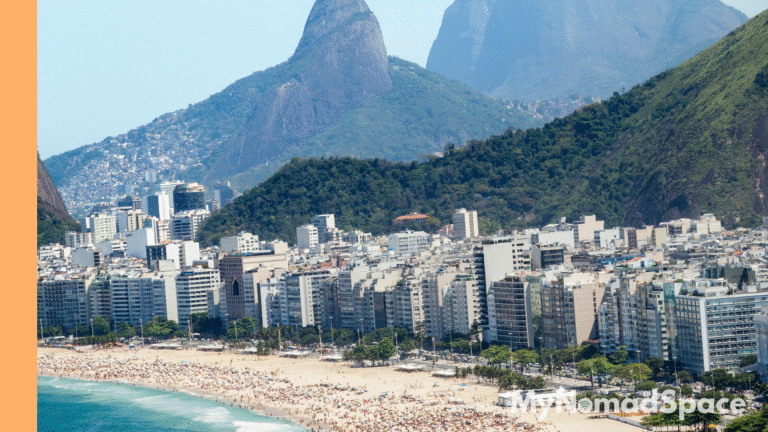
How to apply for the VITEM XIV Visa
Although the process is fairly straightforward, it does require some organisation. Here’s how it typically works, step by step:
1. Review your consulate’s requirements
Each Brazilian consulate may have slightly different processes, so your first step should be to check your local consulate’s guidelines. Some require in-person appointments, while others require documents by mail or drop-off.
2. Gather your documents
Collect everything you’ll need to support your application. This includes proof of remote work, income verification, valid health insurance, a background check and a signed declaration. Some consulates may request translations or notarised versions of specific documents.
3. Complete the online application
Head to Brazil’s official visa platform – Portal eConsular – and fill out the digital nomad visa application. Once submitted, you’ll receive a Visa Request Receipt (known as the RER).
4. Print your RER and prepare your photo
Print your RER and attach a passport-sized photo, as required. These documents will be part of your final submission.
5. Submit your application
Depending on your consulate, you’ll either book an in-person appointment or send your paperwork by post. Make sure to follow their instructions carefully to avoid delays.
6. Pay the visa fee
A visa fee is also required. The exact amount varies by country, so check your consulate’s website for current pricing.
7. Wait for processing
Visa processing typically takes between two and four weeks, though this can vary depending on the volume of applications and the consulate’s schedule.
8. Register with the Federal Police
Once your visa is approved and you arrive in Brazil, you must register with the Federal Police within 90 days. This step confirms your legal residence in the country.
9. Apply for a CPF
You’ll also need to get a CPF – Brazil’s individual taxpayer number. It’s essential for everyday tasks like opening a bank account, getting a phone plan, or renting an apartment.
How long can you stay, and can it be renewed?
The VITEM XIV visa is valid for one year, with the option to extend it for an additional year. To renew, you’ll need to show that you still meet the eligibility criteria, which may include resubmitting income documentation, proof of insurance and updated declarations.
As long as your situation remains consistent and you stay within the legal boundaries, renewal tends to be relatively straightforward.
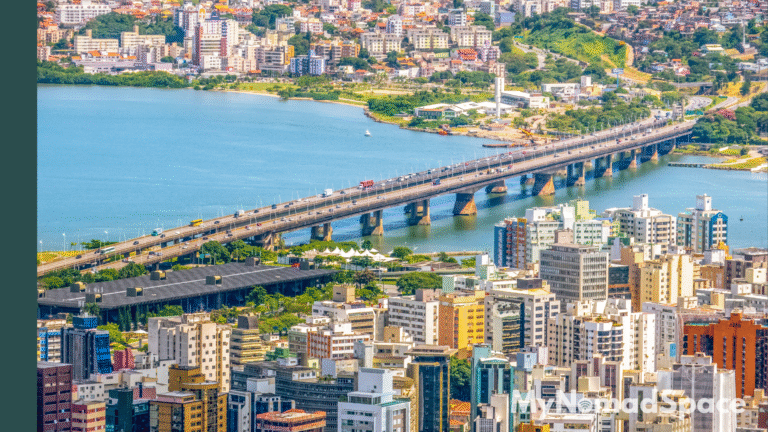
What about paying taxes in Brazil?
One of the most common questions from digital nomads is whether the visa comes with tax obligations in Brazil. In most cases, if you’re not staying in the country for more than 183 days within a 12-month period, you’re unlikely to be considered a tax resident and therefore not liable for Brazilian income tax.
However, tax laws can be complex, and grey areas exist – particularly if you choose to renew the visa or spend significant time in Brazil across multiple years.
If you’re unsure about your tax status or plan to stay long-term, it’s a good idea to consult with an international tax advisor who understands both your home country’s laws and Brazilian tax regulations.
Do you even need a visa?
Depending on your nationality, you might not need a visa at all for a short stay. Citizens of countries such as the UK, US, Canada and most of the EU can enter Brazil visa-free for up to 90 days. That makes it easy to visit and test out whether Brazil suits your lifestyle before committing to something longer-term.
However, if you’re planning to stay for several months or want the peace of mind of living and working in the country legally, the VITEM XIV provides the flexibility and security that tourist stays simply don’t offer.
Further assistance
It’s normal to have questions, especially if this is your first time applying for a digital nomad visa. The VITEM XIV opens the door to a more stable, legal remote work lifestyle in one of the most dynamic countries in the world.
If your situation is a bit complex or you’re unsure how to interpret the requirements, it may be worth speaking to an immigration lawyer or visa specialist familiar with Brazilian processes.
For the most up-to-date and accurate information, visit the official Brazilian Ministry of Foreign Affairs visa page or reach out directly to your nearest consulate.
This article was updated on January 1st, 2026.

